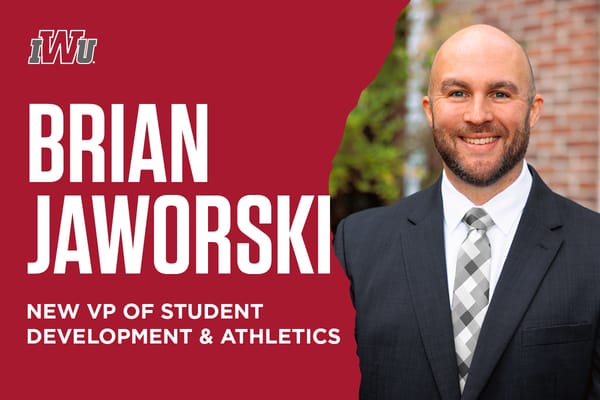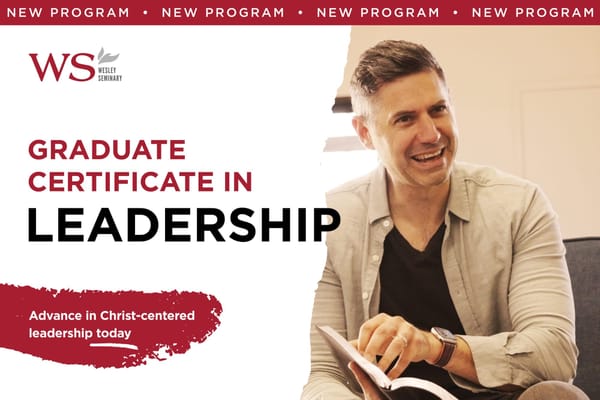How to Write a Great Essay: Tips from a Writing Major
As I start my last semester at Indiana Wesleyan University, I’m reflecting on all that I’ve learned from my classes and campus experiences.
By: Emily Dexter & Jake Hreha
As I start my last semester at Indiana Wesleyan University, I’m reflecting on all that I’ve learned from my classes and campus experiences. One of the biggest lessons has been how to write an essay – both more professionally and more efficiently. I’ve gleaned lessons from my coursework as an English and writing major, as well as from my work as a writing tutor in the Marion campus writing center.
Essay writing can be challenging. Developing strong writing skills will help you be successful in your course work. To help you work through the writing process on your next assignment, here are some of my top tips for the essay writing process:
Focus on the thesis.
Almost every academic essay I’ve written for a class has required a clear thesis statement. A thesis is usually a one-sentence statement that encapsulates your argument. It’s often referred to as a “roadmap” for your paper and lets the reader know what to expect as they move through your paper. A fairly basic formula looks like this:
[The main point the essay is trying to make] + [Transition] + [Reason 1] + [Reason 2] + [Reason 3]
For example:
Online education provides college students with better learning experiences than in-person education because of increased flexibility, improved work-life balance, and the ability to focus on one class at a time.
In this example essay, the main point I’m arguing is that online education provides college students with better learning experiences than in-person education. I have three reasons to back up this claim: increased flexibility, improved work-life balance, and the ability to focus on one class at a time. In the following paragraphs, I would address each of these three reasons, starting with the first one listed in the thesis and moving on from there.
Most professors will expect to find the essay’s thesis statement at the end of the introduction. Another tip is to understand the type of essay you are writing – is it an argumentative essay? A research paper? A set of persuasive essays? What is the purpose of the paper – to convince, to persuade, to inform, or something else? Make sure the thesis statement aligns with the purpose of the essay.
2. Plan it out – and find what works for you.
Prewriting, or planning out what you want to say in your essay, can make the actual writing a lot easier. Not everyone’s prewriting needs to look the same, though. If writing a formal essay outline works for you, that’s great! If not, there are plenty of other options you can try.
Here are some strategies to help kickstart your writing process:
- Create an outline with a topic sentence for each body paragraph.
- Write down the main points you want to cover in the essay.
- Set a timer and do some free writing. Get all your ideas on paper and then think about how to organize them.
- Use speech-to-text software to jot down ideas without even touching a keyboard.
- Make a bubble map or other visual outline.
- Talk through your thoughts with a friend or writing tutor.
It’s taken me time to figure out what works best for me when writing an essay. Trying to figure out the main points, paragraph structure, or introduction paragraph all at once can feel overwhelming. Breaking up the writing process can help you get started writing even without the entire essay planned out. If you’re feeling stuck when starting a paper, don’t be afraid to switch up your strategy!
Remember when you write an essay it's okay to have a first draft that looks totally different from your final draft.
3. Do your research.
Many academic essays require secondary sources. Good research can give your essay credibility and help to round out your argument. IWU students have access to a variety of resources through the Jackson Library – both at the Marion campus and online. The library’s database allows you to filter search results by type, date, and peer-reviewed status.
Make sure to avoid plagiarism and cite your sources correctly – both as in-text citations and in your works cited page. The IWU portal includes helpful cheat sheets on the MLA, APA, and Chicago citation styles on the writing center’s page.
It can also be valuable to spend time researching the structure to use in your essay writing. Depending on if you are writing a five paragraph essay, an argumentative essay, or another form of college essay it is important that you start writing with the right structure in mind. This will impact your essay writing process including your conclusion paragraph, your body paragraphs, your transitional phrases, and more.
4. Revision matters.
Once you finish a draft, it can be tempting to submit your essay without taking any extra time for revision. But taking a second look at your paper can make a huge difference. Here are some tips for revising your paper:
- Read your essay out loud. This can help you catch mistakes you might miss while reading silently. You can even have Microsoft Word read your paper to you; just go to the Review tab and select “Read Aloud.”
- Have a friend read your essay. This can help you see what grabs the reader's attention and how the overall structure flows together.
- Double check that you’ve included smooth transitions between paragraphs.
- Watch out for passive voice. The online Hemingway Editor is a great free resource that can help you identify passive voice along with other writing issues.
- Beware of sentence fragments and comma splices. Writing in complete sentences will make your paper much more formal.
Overall, my best advice is to have confidence and find what strategies work best for you. I wish you luck as you embark on your next essay! To see all the resources available to IWU students, including access to Grammarly, visit our Student Resources page.
Emily Dexter
Copywriting and Marketing Assistant
Emily Dexter is currently a senior at Indiana Wesleyan University, where she majors in English and writing. She is passionate about all things literary, and in her free time enjoys reading good books, attempting new art projects, and exploring the natural world.
Jake Hreha
SEO Copywriter
Jake Hreha is a graduate of Ball State University, where he majored in advertising with a concentration in media presentation and design. He is passionate about design, and in his free time he enjoys cycling, traveling, and reading.




